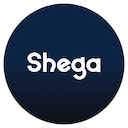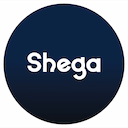Progress for 0 ad
Progress for 1 ad
Progress for 2 ad
Progress for 3 ad


Team Shega
Addis Ababa, Ethiopia

In a continent where thousands of lives are lost annually to fake medicines, Ethiopia’s drug regulator has won rare global recognition for the strength of its medicines oversight, even as the country struggles to build a competitive pharmaceutical sector.
The Ethiopian Food and Drug Authority (EFDA), under the Ministry of Health, earned certification from the World Health Organization (WHO) for reaching “Maturity Level 3,” marking a stable, integrated system that assures the safety, quality, and efficacy of medical products across their lifecycle.
Fewer than 70 countries worldwide and just eight in Africa, including Egypt, Ghana, Nigeria, South Africa, Tanzania, Zimbabwe, Senegal, and now Rwanda, have hit this benchmark.
The WHO evaluates national drug regulators on a four-tier scale that measures the maturity and effectiveness of their systems. Level 1 reflects basic operations, where fundamental structures are just being established. Level 2 marks emerging systems with some regulatory capacity but still limited integration. Level 3, the milestone Ethiopia has now reached, denotes a well-functioning system that meets international standards, capable of overseeing the safety, quality, and effectiveness of medical products. The highest tier, Level 4, is reserved for elite regulators operating on par with the most advanced agencies in Europe and North America.
The announcement was made this morning at the Ethiopia Human Capital Forum 2025, co-hosted by the Ministry of Finance and the World Bank at the Adwa Museum in Addis Ababa.
“This achievement is not only a recognition of EFDA’s strength, but also of Ethiopia’s growing ambition to become a regional pharmaceutical manufacturing hub,” said Mekdes Daba (M.D), Ethiopia’s Health Minister.
President Maryam Salim World Bank Country Director for Eritrea, Ethiopia, South Sudan and Sudan, hailed the step as proof of a lifecycle-ready framework for medicines, from trials to approvals. She highlighted wider health gains, like falling child mortality, bolstered pandemic readiness, and advances in nutrition and inclusion.
However, the nod lands as the pharmaceutical sector grapples with heavy import reliance, over 80% of drugs, costing around $677 million yearly in foreign exchange. Local manufacturing, a top priority, starves for funding, tech transfers, and one of the lowest health care worker-to-patient ratios in sub-Saharan Africa, at one physician per 5183 people.
👏
😂
❤️
😲
😠

Team Shega
Your Email Address Will Not Be Published. Required Fields Are Marked *